In an era defined by climate change, rapid urbanisation, and the urgent need for sustainable waste management, London is turning to innovative solutions to keep pace with its environmental goals.
One of the most impactful advancements in this area is the rise of Waste-to-Energy (WTE) companies organisations that transform non-recyclable waste into usable energy.
These firms are not just helping the city manage its waste more efficiently; they’re also contributing to London’s ambition of becoming a carbon-neutral metropolis.
This blog explores the top 10 WTE companies operating in London, shedding light on the services they provide, how their technologies work, and why they’re vital to the capital’s sustainable future.
Whether you’re a policymaker, business owner, or simply a curious resident, understanding the power of waste-to-energy solutions can help you make more informed decisions for a greener tomorrow.
What Are Waste-to-Energy (WTE) Companies and Why Are They Important in London?
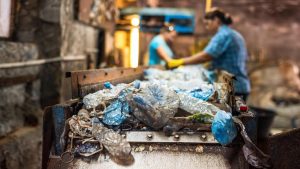
Waste-to-Energy companies specialise in converting residual waste – waste that cannot be recycled into forms of renewable energy such as electricity or heat. These processes reduce landfill use, lower greenhouse gas emissions, and help generate clean energy.
Sustainable Waste Disposal
WTE reduces the volume of waste requiring landfill disposal, freeing up valuable land and minimising harmful methane emissions.
Clean Energy Generation
By converting waste into electricity, WTE companies help reduce reliance on fossil fuels and support the UK’s renewable energy targets.
Economic and Employment Opportunities
These companies not only create local jobs in operations, logistics, and engineering but also stimulate green innovation and R&D investment.
How Does Waste-to-Energy Technology Work in the UK?
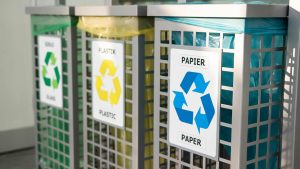
WTE technology has evolved significantly over the past two decades, becoming cleaner, safer, and more efficient. In the UK, WTE facilities are heavily regulated, ensuring minimal environmental impact.
Core WTE Methods
Incineration with Energy Recovery
The most widely used method, incineration involves burning waste at high temperatures. The heat generated produces steam that drives turbines to generate electricity. Advanced filtration systems ensure pollutants are captured before emissions reach the atmosphere.
Anaerobic Digestion (AD)
Used primarily for organic waste, AD breaks down biodegradable materials in the absence of oxygen, producing methane-rich biogas. This gas can be burned to generate electricity or upgraded for grid injection.
Pyrolysis and Gasification
These emerging technologies thermally decompose waste at high temperatures in controlled conditions, producing synthetic gas (syngas) that can be used for fuel or power generation.
Top 10 WTE Companies Operating in London
1. Cory Group – “Powering London’s Waste into Energy”
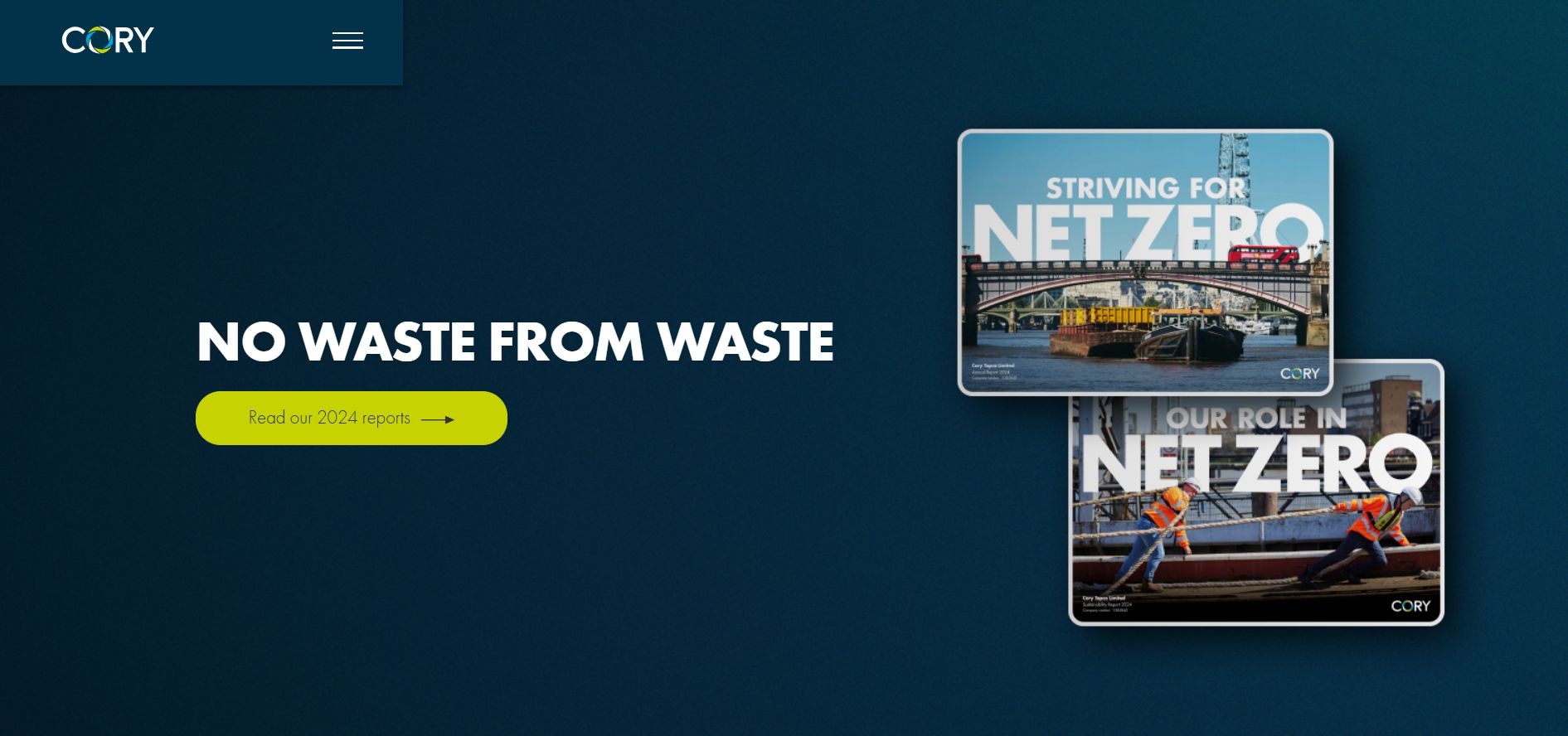
Cory Group is a cornerstone in London’s waste-to-energy sector, operating from its high-capacity Riverside Energy Recovery Facility in Belvedere. With more than 125 years of experience, Cory has pioneered the use of river transport for waste logistics, moving waste via the River Thames rather than congested city roads cutting carbon emissions significantly.
The company processes non-recyclable waste from various London boroughs and turns it into enough electricity to power over 100,000 homes annually. Cory is also heavily involved in the development of carbon capture projects and advocates for environmentally responsible growth.
Core Expertise
Industry leader in river-based WTE logistics and low-emission infrastructure.
Ideal For
Municipal authorities seeking low-carbon, large-scale waste processing solutions.
Pricing: Tailored quotes; dependent on volume and contract terms.
- Website: www.corygroup.co.uk
- Phone: 020 7417 5219.
- Address: 10 Dominion Street Floor 5 Moorgate, London EC2M 2EF
- Email: enquiries@corygroup.co.uk
Review: ★★★★☆
“We’ve worked with Cory for years. The river barge system is not only efficient but helps meet our emissions targets.”
2. Veolia UK – “Resourcing the World, Responsibly”
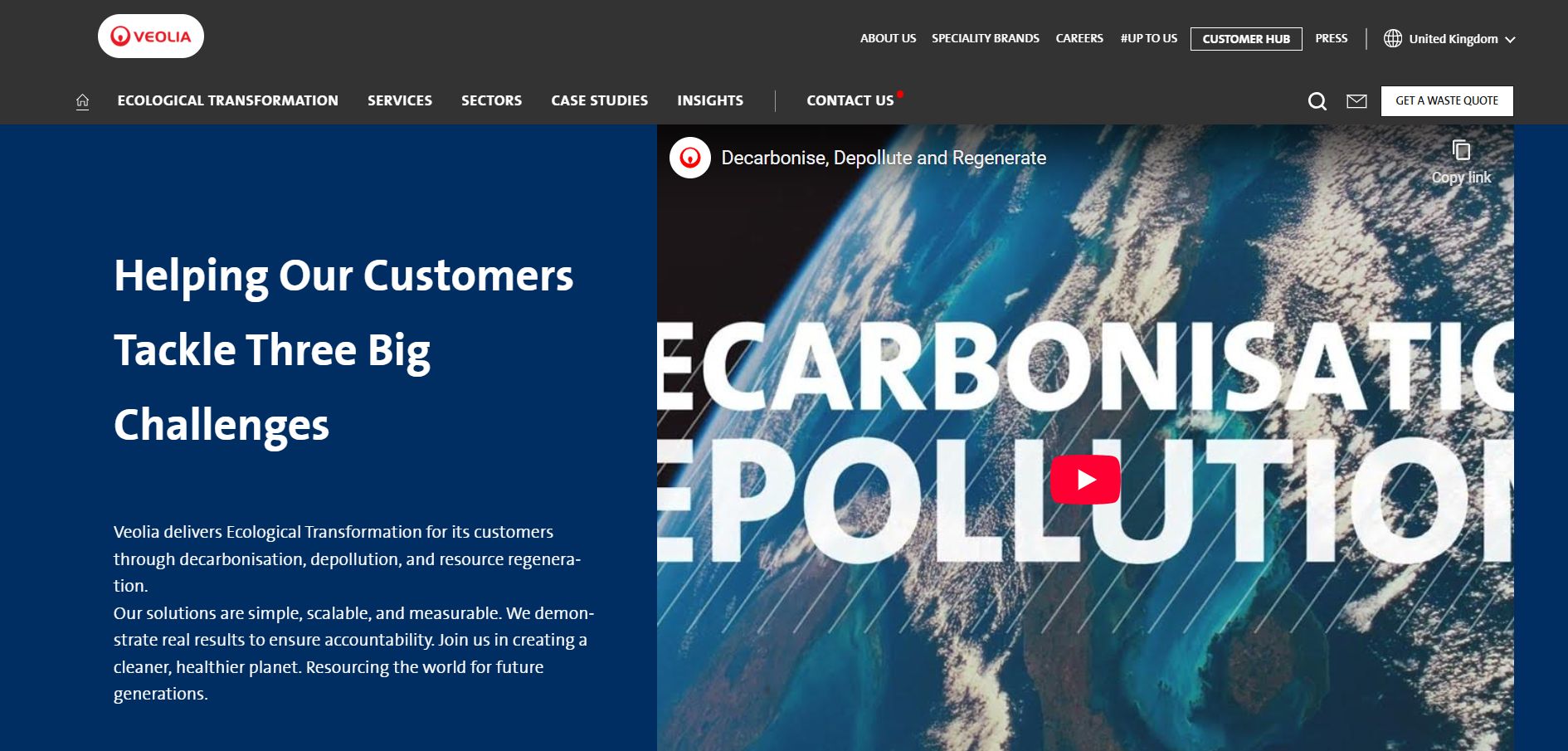
Veolia is a global environmental services giant with a strong operational base in London. Their South East London Combined Heat and Power (SELCHP) facility plays a vital role in managing the capital’s residual waste. Veolia’s approach is fully circular, integrating recycling, energy generation, and wastewater treatment.
Their investment in innovation includes AI-driven waste sorting and carbon capture trials. With over 160 years in the field, Veolia offers unmatched experience and resources to deliver high-impact solutions for cities and corporations alike.
Operational Strength
Comprehensive circular economy solutions and global innovation pipeline.
Suited For
Local authorities and private sector giants requiring integrated environmental management.
Pricing: Based on tender agreements and contract scope.
- Website: www.veolia.co.uk
- Phone: 020 7812 5000
- Address: 210 Pentonville Road, London N1 9JY
Review: ★★★★☆
“Veolia is a full-service partner. Their data transparency and support for large estates are excellent.”
3. SUEZ Recycling and Recovery UK – “Making Waste Work for London”
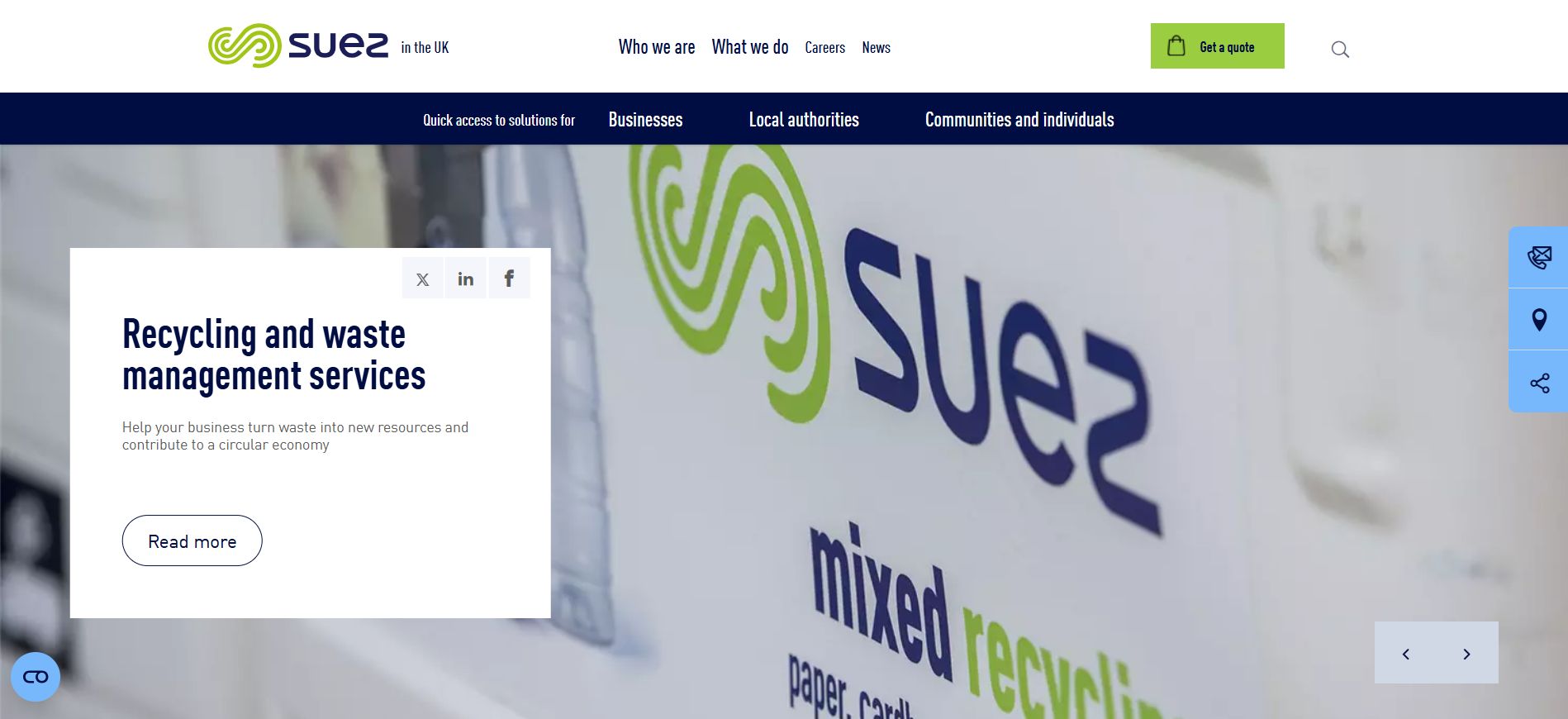
SUEZ has earned national recognition for its expertise in turning waste into valuable resources through cutting-edge energy recovery systems.
In London, their operations are anchored in Mitcham, where they process household and commercial waste for several boroughs. SUEZ is known for its high landfill diversion rates, with over 95% of waste handled being reused, recycled, or converted to energy.
The company has a reputation for client education, carbon reporting, and regulatory compliance. They also run smart logistics to minimise collection miles.
Strength Area
Sustainable waste diversion with educational and analytical support.
Best Matched For
Councils and businesses focused on traceability, ESG, and zero-waste goals.
Pricing: Varies depending on waste volume and frequency.
- Website: www.suez.co.uk
- Phone: +44 800 093 1103
- Address: Pensbury Pl, Nine Elms, London SW8 4TR
Review: ★★★★☆
“They do more than remove waste—they help us understand it. A solid sustainability partner.”
4. Viridor – “Transforming Waste into Opportunity”
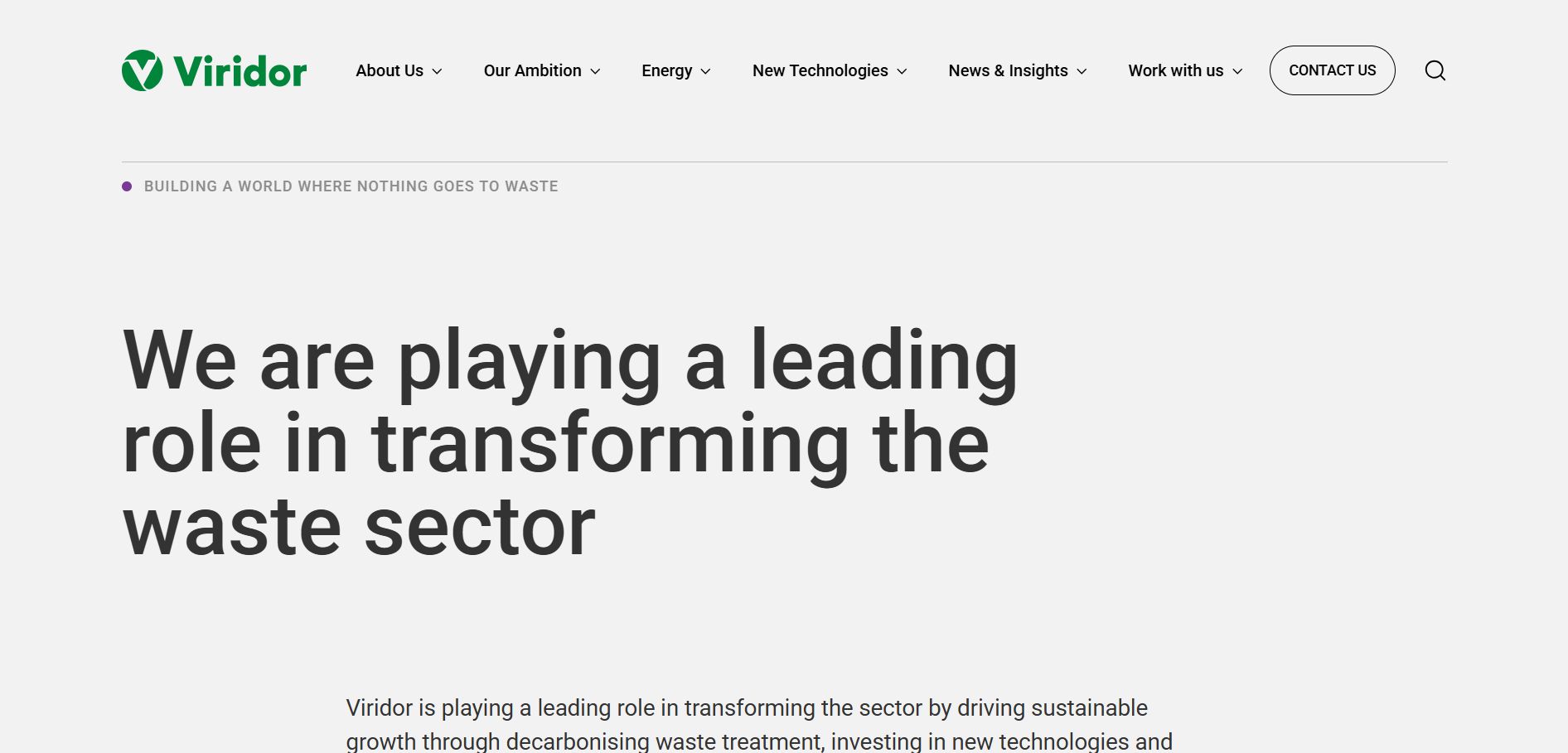
Viridor operates the Beddington Energy Recovery Facility in Sutton, which processes over 300,000 tonnes of waste every year. This modern facility converts non-recyclable waste into enough electricity to power approximately 60,000 homes.
Viridor is also heavily invested in UK plastic recycling and has led several initiatives in polymer sorting and reuse. Their approach is technology-driven, focusing on digital monitoring and transparent emissions reporting. As one of the UK’s largest WTE players, Viridor offers both scale and sustainability.
Operational Focus
Efficient high-throughput energy conversion with strong emission controls.
Tailored To
Large urban zones needing scalable, tech-supported energy-from-waste services.
Pricing: Client-based quotations available.
- Website: www.viridor.co.uk
- Phone: +44 (0) 1823 721400
- Address: Kingston upon Thames KT1 3GZ
- Email: enquiries@viridor.co.uk
Review: ★★★★☆
“A well-run site. Very professional staff and a clean facility. It’s modern and community-friendly.”
5. LondonEnergy Ltd – “The Power Behind London’s Waste”
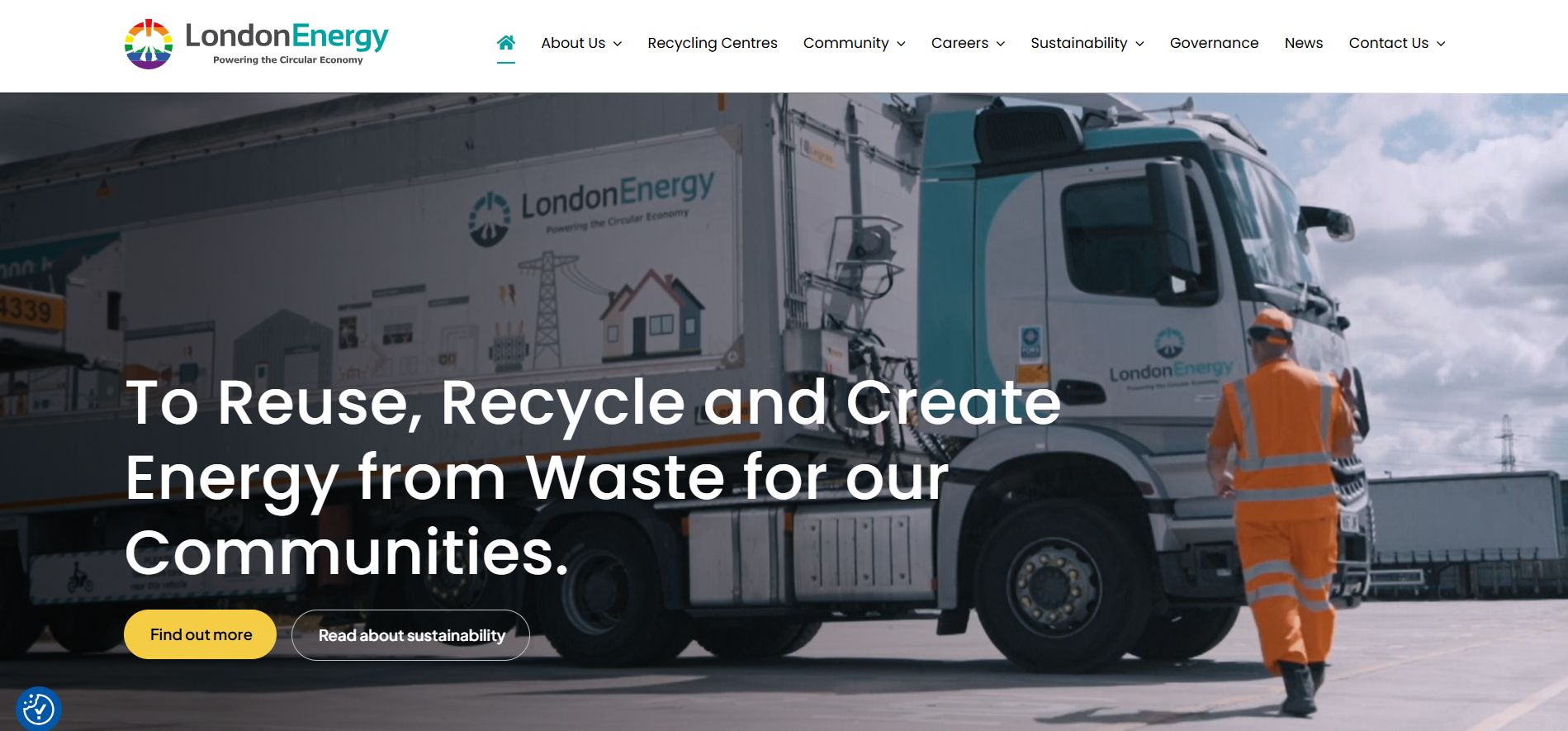
LondonEnergy, owned by the North London Waste Authority, runs the Edmonton EcoPark, serving seven boroughs in North London. Their EfW plant diverts 700,000+ tonnes of waste from landfill annually and is the focus of the North London Heat and Power Project an ambitious redevelopment to make the facility a hub of green infrastructure.
LondonEnergy also operates reuse and recycling centres and plays an active role in local education and social value creation.
Primary Capability
Borough collaboration and sustainable redevelopment of legacy infrastructure.
Most Suitable For
Government partnerships and long-term city development projects.
Pricing: Accessed via local authority procurement.
- Website: www.londonenergyltd.com
- Phone: 020 7000 9595
- Address: EcoPark, Advent Way, London N18 3AG
- Email: enquiries@londonenergyltd.com
Review: ★★★★☆
“They’re a strong community presence. Their redevelopment work is inspiring and future-focused.”
6. Grundon Waste Management – “Waste Innovation Since 1929”
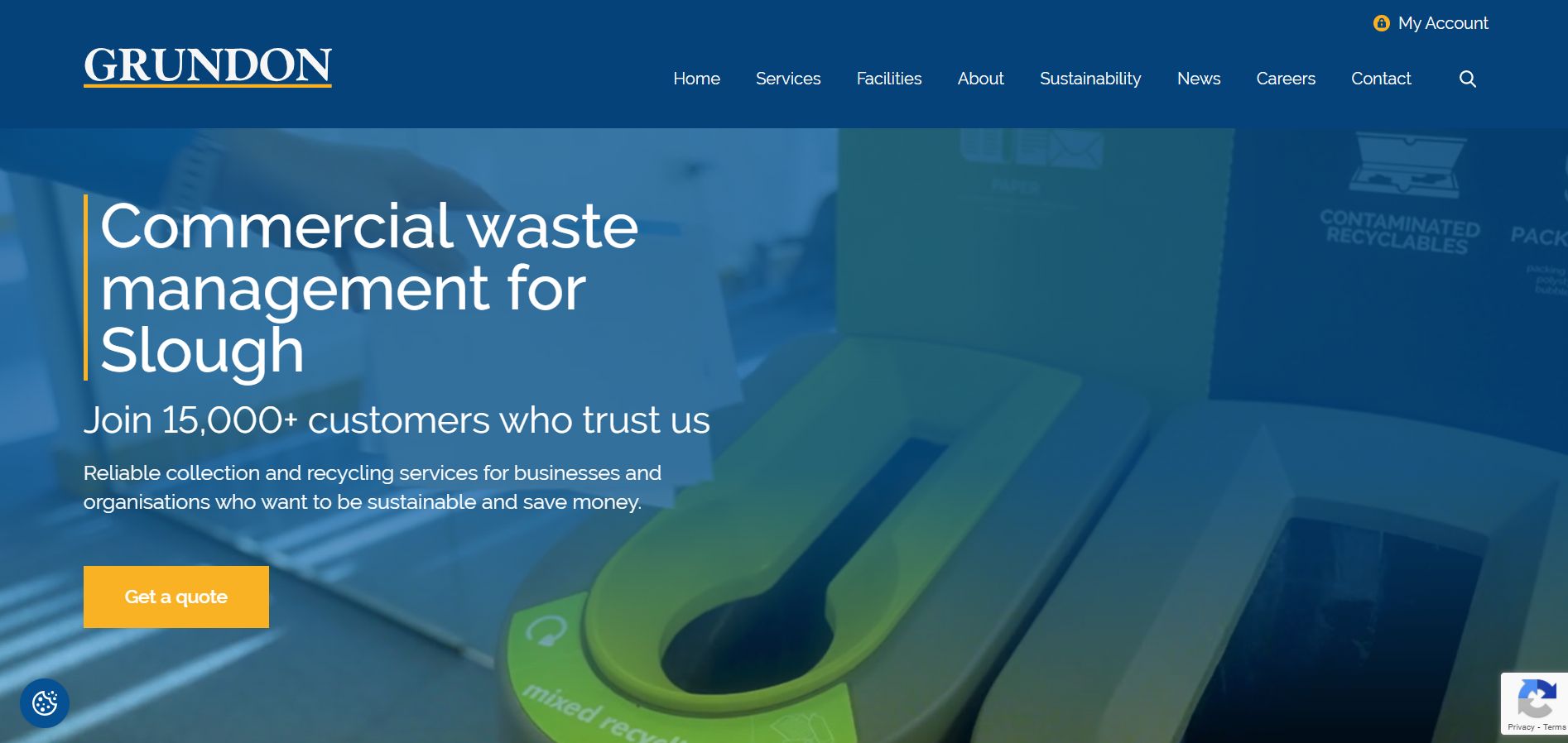
Grundon is known for its clinical, hazardous, and specialist waste services something most standard WTE companies don’t offer. With facilities near Heathrow, they service a wide range of high-compliance clients like hospitals, labs, and research parks.
Their EfW plant in Oxfordshire processes non-recyclable waste and turns it into low-carbon electricity. Grundon also leads in carbon reporting and sustainability accreditation.
Area of Excellence
Specialist waste handling with strong compliance systems.
Ideal Fit
Healthcare providers and industrial clients with hazardous waste.
Pricing: Case-by-case based on regulatory needs.
- Website: www.grundon.com
- Phone: 01491 834 311
- Address: Lakeside Industrial Estate, Colnbrook, Slough SL3 0EG
- Email: info@grundon.com
Review: ★★★★☆
“They’re the only ones we trust with our lab waste. Super detailed and always on time.”
7. Biffa – “Sustainable Waste Solutions for Business”
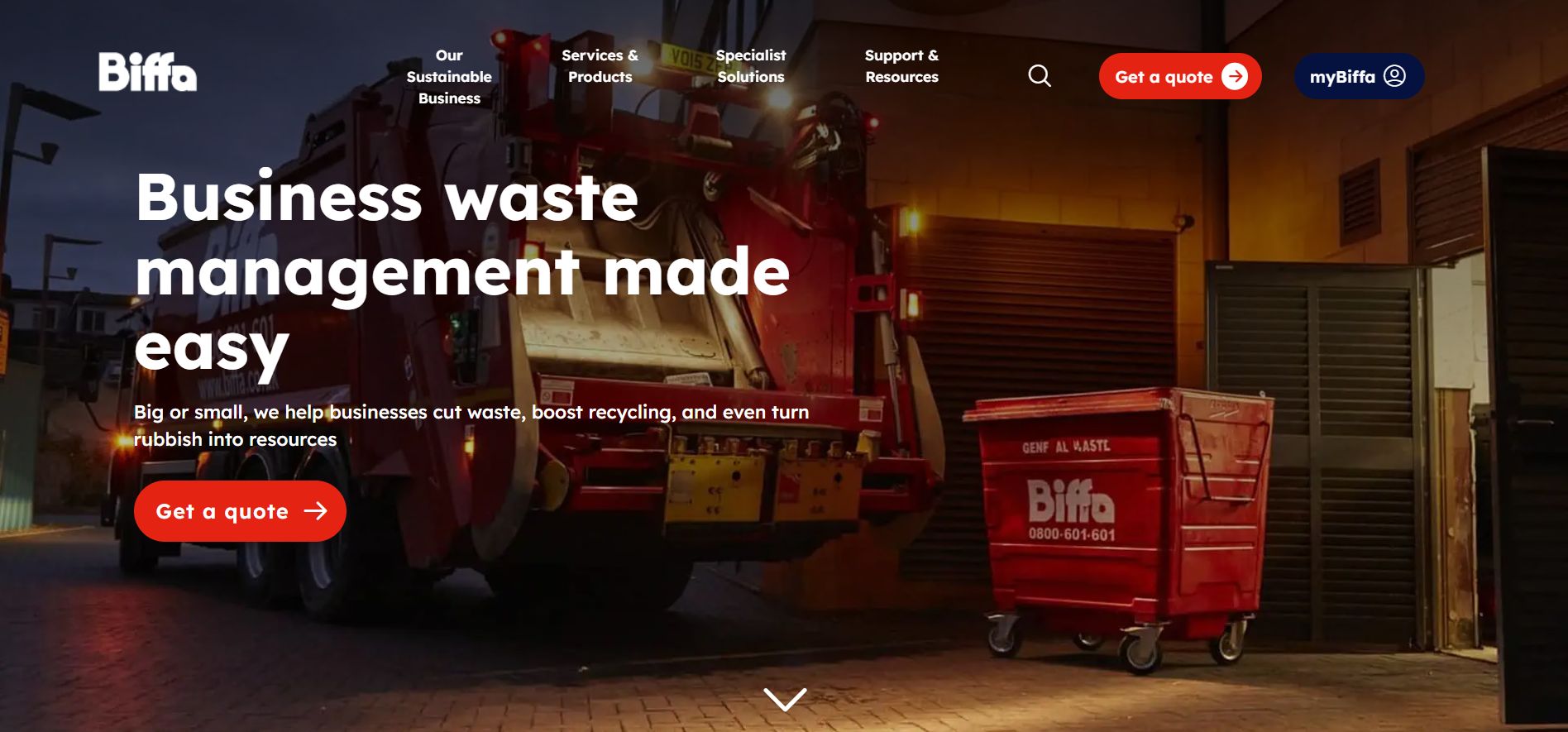
Biffa operates an extensive waste collection infrastructure across the UK, with a particularly strong presence in London’s commercial and municipal sectors.
Their services include general waste pickup, segregation, recycling, and residual waste recovery. Through partnerships, Biffa also contributes to WTE projects across the UK. While primarily known for logistics and business waste management, their influence in the WTE space is growing through recent acquisitions and infrastructure investment.
Competitive Edge
Broad logistics coverage with growing WTE network access.
Perfect Choice For
Well-suited for small to large businesses looking for an all-in-one solution that combines waste disposal with responsible recycling.
Pricing: Subscription-based; adjustable per client scale.
- Website: www.biffa.co.uk
- Phone: +44 330 060 9532
- Address: 45 Pensbury St, Nine Elms, London SW8 4TR
- Email: services@biffa.co.uk
Review: ★★★☆☆
“Convenient and reliable pickups. Service is decent, but they’re better for logistics than energy.”
8. EnviRecover – “Midlands Efficiency, London Reach”
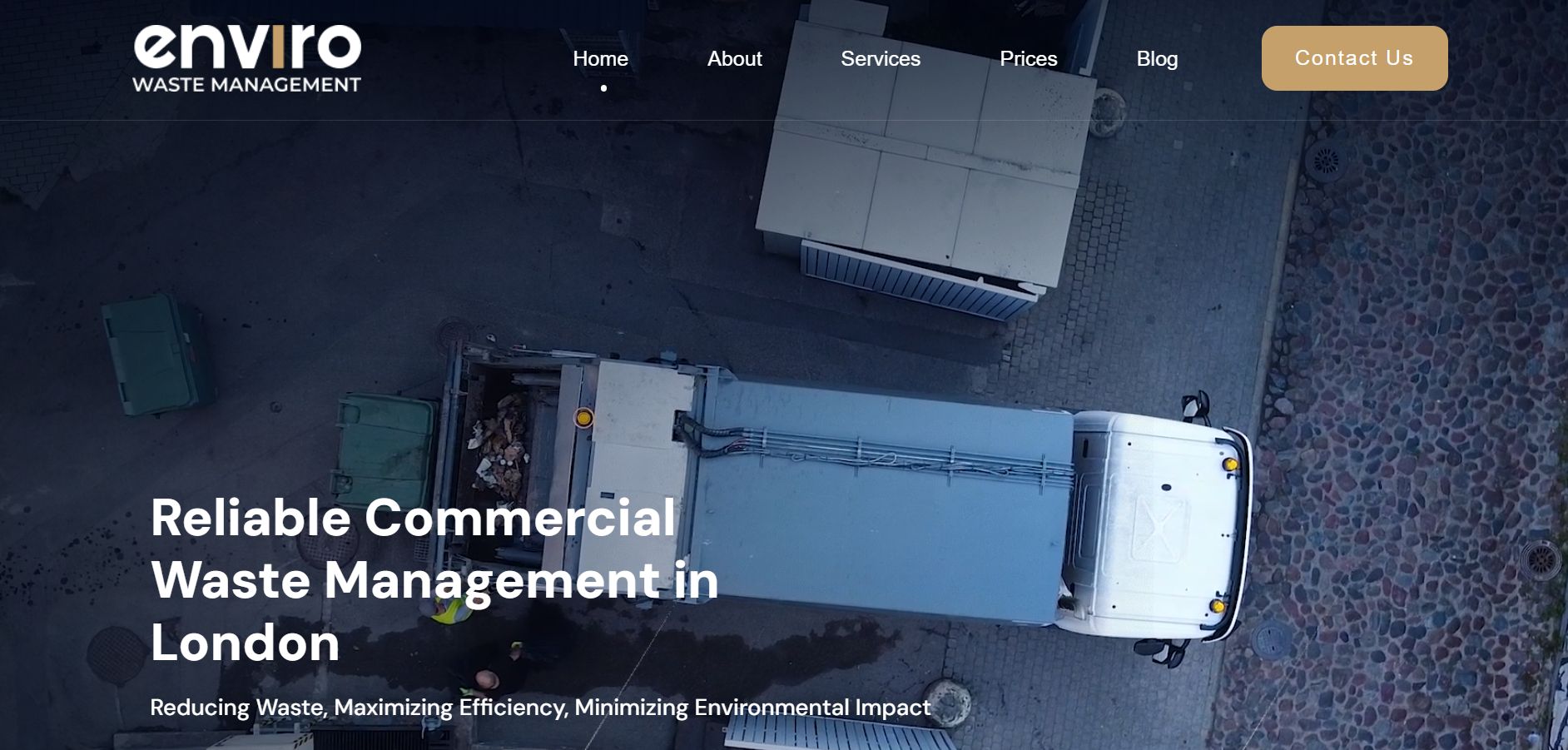
Though based in Worcestershire, EnviRecover partners with London-based contractors to handle overflow commercial waste streams. The facility processes 200,000 tonnes of waste annually, turning it into low-carbon electricity.
Their operations are modern, efficient, and suited for high-capacity clients. As a regional player, EnviRecover offers value through affordability and robust volume processing.
Strong Point
Partnered volume processing at competitive rates.
Recommended For
Third-party contractors and business waste aggregators.
Pricing: Negotiated via B2B contract or partnership.
- Website: envirowastemanagement.com
- Phone: 020 3773 1132
- Address: Unit T14, Leyton Industrial Village, Argall Ave, London E10 7QP
- Email: bookings@envirowastemanagement.com
Review: ★★★★☆
“While they don’t operate in London directly, they’re great partners for overflow capacity.”
9. Covanta Europe – “Delivering Sustainable Energy Solutions”
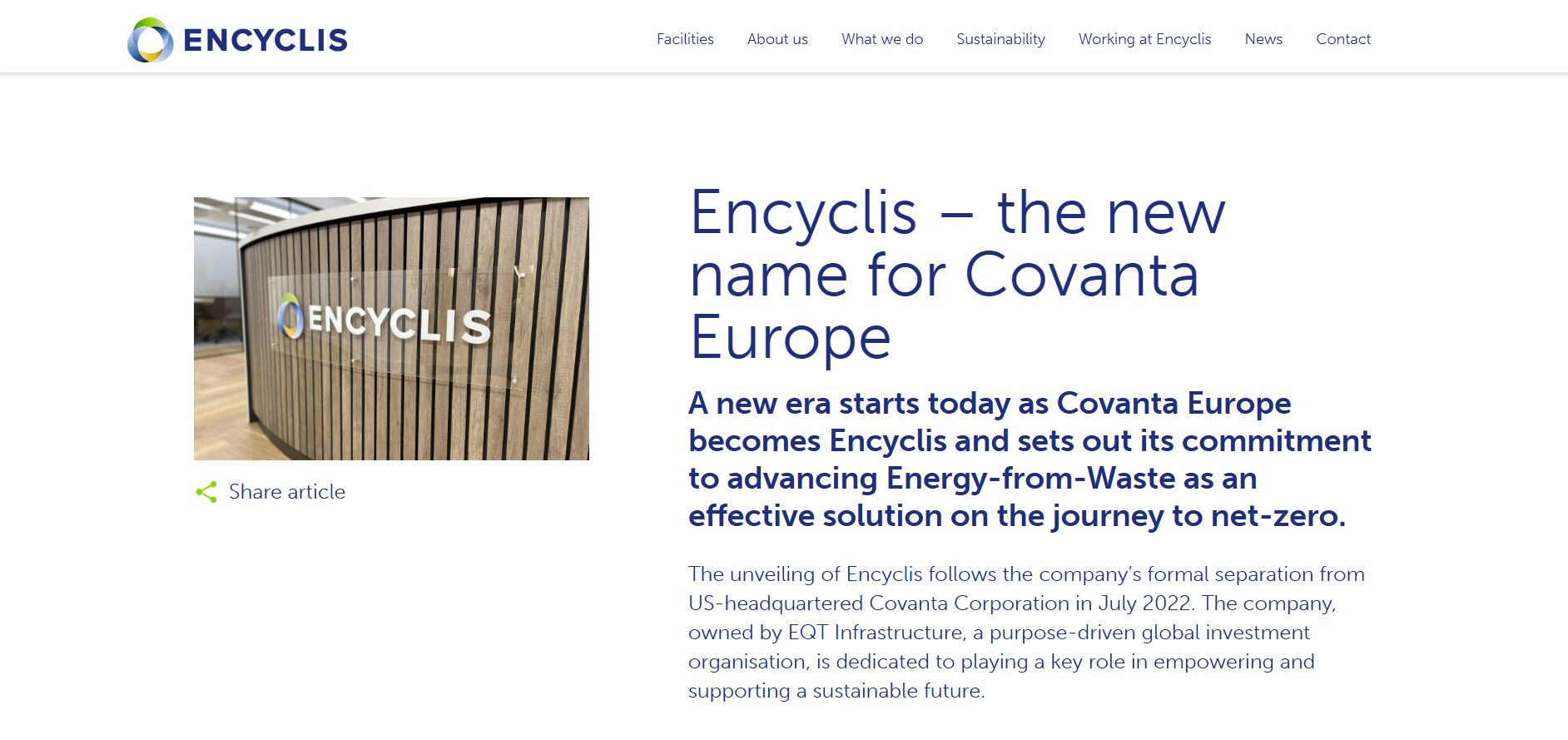
Covanta Europe, The company recently rebranded as Encyclis a part of a global WTE group, is setting new standards for clean energy production with its Rookery South facility. Though based outside London, the plant serves the capital through long-haul contracts.
It is among the few sites piloting full-scale carbon capture, making it a standout in sustainable WTE tech. Covanta also invests in public transparency and low-NOx emissions systems.
Signature Capability
State-of-the-art emissions reduction and carbon capture.
Optimal For
Strategic energy procurement for public and private projects.
Pricing: Based on large-scale contracts and project tenders.
- Website: www.encyclis.com
- Phone: 0203 839 4570
- Address: Lynton House 7-12, Tavistock Square London WC1H 9LT
- Email: info@encyclis.com
Review: ★★★★☆
“World-class facility. They stand out for their forward-thinking technology and strong commitment to reducing emissions through innovative systems.”
10. FCC Environment – “Recycling Waste into Resource”
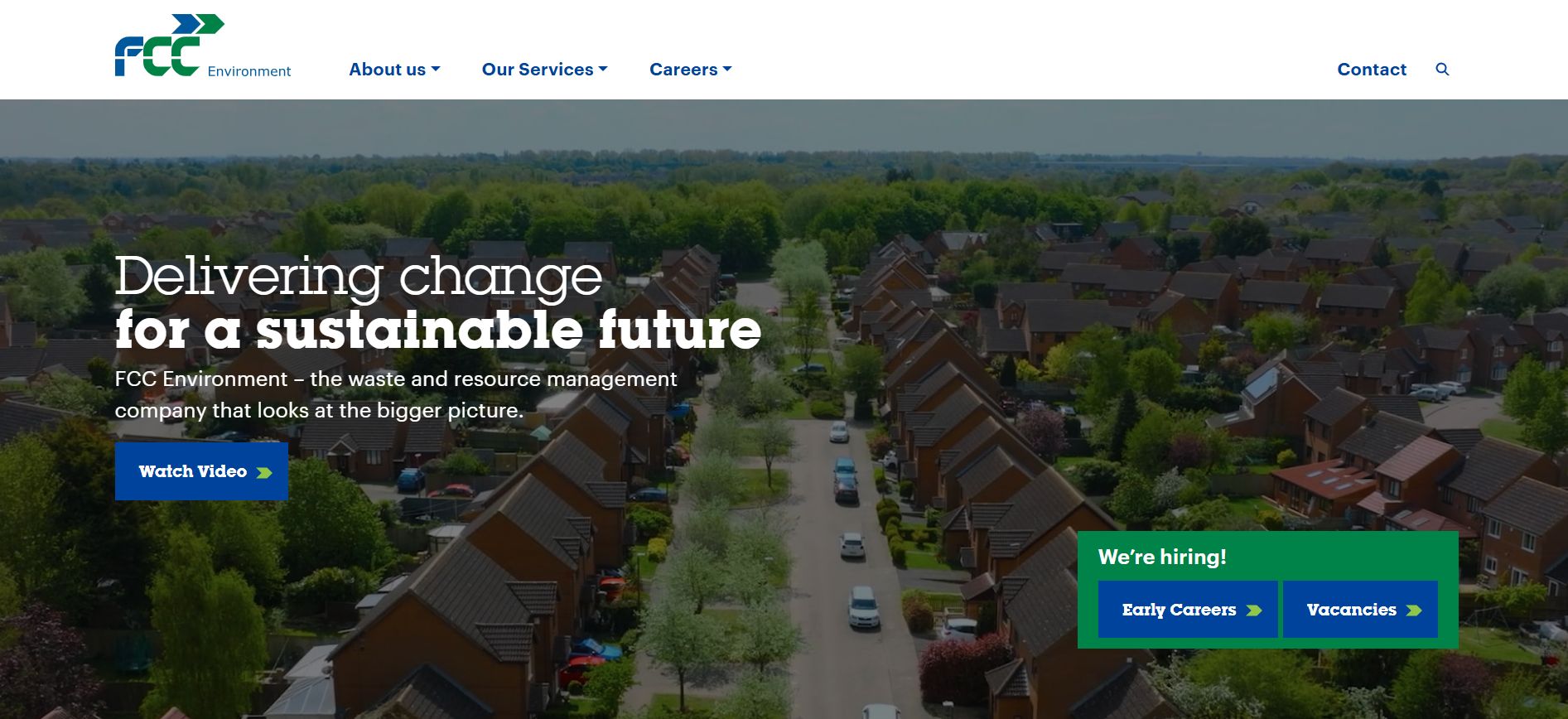
FCC Environment runs a highly active East London EfW plant at Jenkins Lane. It serves municipal and commercial clients, converting waste to energy while also offering sorting and recycling solutions. The company prioritises safe operations, environmental education, and robust client support, making it a reliable long-term partner.
Top Skillset
Fully integrated EfW and recycling system with London-specific support.
Suitable For
Multi-borough contracts and public-private waste partnerships.
Pricing: Based on tonnage and service complexity.
- Website: www.fccenvironment.co.uk
- Phone: 01302 303030
- Address: Sidings Court, White Rose Way, Doncaster, DN4 5NU
Review: ★★★★☆
“Professional, consistent, and clear communicators. Very reliable EfW operator for large projects.
What Makes These Waste-to-Energy Companies Stand Out?

Environmental Accreditations
Top companies like Cory and Veolia maintain certifications such as:
- ISO 14001 – Environmental Management
- ISO 50001 – Energy Management
- PAS 402 – Waste Resource Management
Technological Leadership
Firms like SUEZ and Viridor are investing in automation, smart emissions monitoring, and AI to optimise energy output and minimise pollution.
Community Engagement
Companies such as LondonEnergy Ltd run visitor centres and educational programmes to promote awareness and transparency around WTE operations.
How Do These Companies Contribute to a Greener London?
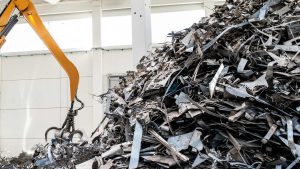
Reducing Landfill Dependency
By processing thousands of tonnes of waste daily, WTE facilities significantly decrease the amount of rubbish going to landfill.
Supporting Renewable Energy Goals
WTE contributes a reliable source of electricity and heat to the national grid and local boroughs, aligning with London’s zero-carbon strategy.
Promoting Circular Economy
Through partnerships and innovation, these companies return energy and recovered materials to the economy, reducing overall waste.
What Should You Consider When Choosing a WTE Service Provider?

Regulatory Compliance
Ensure the provider is licensed and audited by the Environment Agency.
Waste Handling Capabilities
Different companies manage various waste streams domestic, clinical, industrial so choose based on your specific needs.
Environmental Track Record
Review emissions data, certifications, and sustainability reports to assess their impact and transparency.
What Challenges Do Waste-to-Energy Companies Face in London?
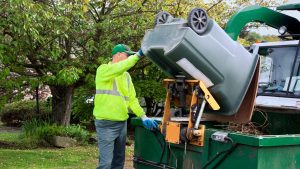
Public Opposition and Perception
Despite scientific evidence supporting WTE’s safety, some communities remain resistant due to outdated perceptions about incineration and air quality.
Infrastructure Costs
Building EfW plants is capital-intensive and requires long-term investment and public-private partnerships.
Evolving Regulations
Companies must stay agile in response to changing waste directives, emission standards, and energy policy reforms.
How Is the Future of Waste-to-Energy Shaping Up in London?
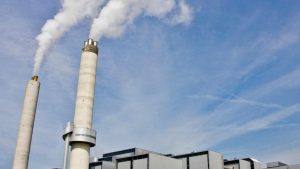
Facility Upgrades and Expansion
Major players like Cory and SUEZ are investing in new facilities and upgrading existing ones to boost capacity and efficiency.
Integration with Carbon Capture
Some plants are piloting Carbon Capture and Storage (CCS) systems to neutralise emissions and further reduce environmental impact.
Hydrogen Co-production
R&D initiatives are exploring hydrogen production from waste as a clean fuel alternative for transport and heating.
How Do WTE Companies Align with the UK’s Net Zero Goals?

Renewable Energy Contribution
By turning unrecyclable waste into energy, these companies help phase out fossil fuels in electricity and heating.
Decarbonising Waste Management
The WTE sector complements recycling and composting efforts, helping the UK build a complete, low-emission waste strategy.
Why Should Businesses and Municipalities Support WTE Solutions?
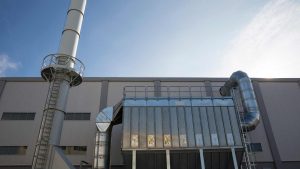
Sustainable Brand Reputation
Businesses that use certified WTE services can demonstrate their commitment to sustainability and corporate responsibility.
Cost Predictability
Long-term contracts with WTE companies often offer more predictable costs than volatile landfill taxes or export fees.
Contribution to Local Energy Security
WTE enhances local grid stability and energy independence, especially important in urban settings like London.
Conclusion
From turning non-recyclable waste into renewable electricity to fuelling economic and technological innovation, WTE companies in London are leading the charge in sustainable urban development.
As the city advances toward its 2030 net zero goal, these firms are not just managing waste they’re powering a cleaner, smarter, and more resilient future.
FAQs About WTE Companies in London
Are WTE companies environmentally safe?
Yes, most modern WTE companies operate under strict environmental controls and use advanced technologies to minimise pollution.
Can businesses partner with WTE providers directly?
Absolutely. Many WTE companies offer commercial waste management services tailored to businesses of all sizes.
Is waste-to-energy more sustainable than landfill?
Yes. WTE reduces methane emissions from landfills and recovers energy that would otherwise be lost.
Do WTE plants emit harmful gases?
Emissions are carefully monitored and filtered. London WTE plants must comply with UK and EU air quality standards.
How much electricity do WTE plants in London generate?
Some plants, like Cory’s Riverside facility, can power over 100,000 homes annually with the electricity they generate.
Are there any visitor centres for educational purposes?
Yes, companies like LondonEnergy Ltd offer public tours and school visits to promote awareness about sustainable waste management.
How can residents benefit from WTE companies?
Residents benefit through cleaner communities, reduced landfill usage, and access to locally generated renewable energy.
